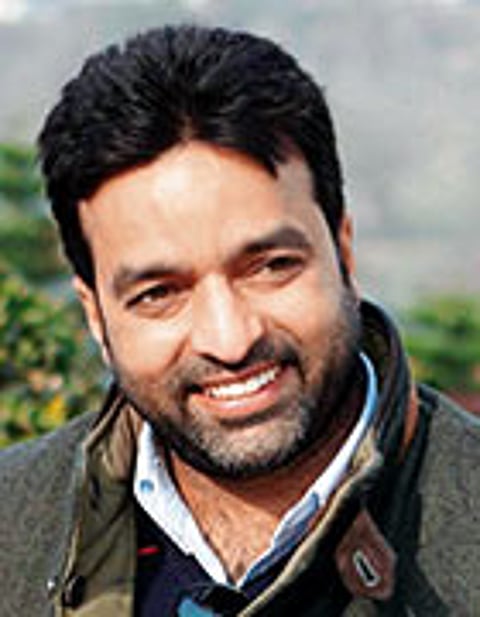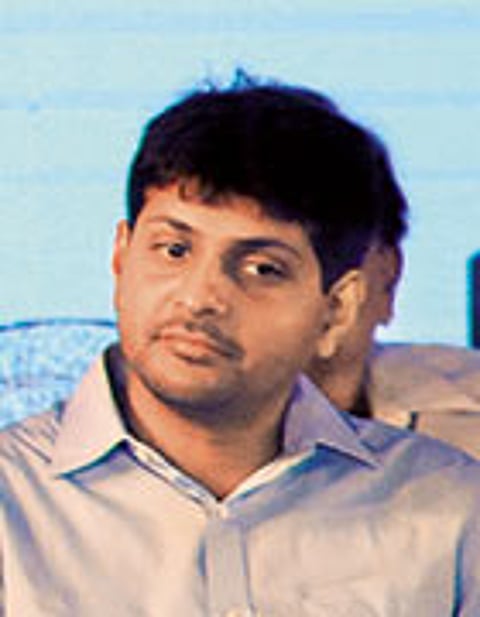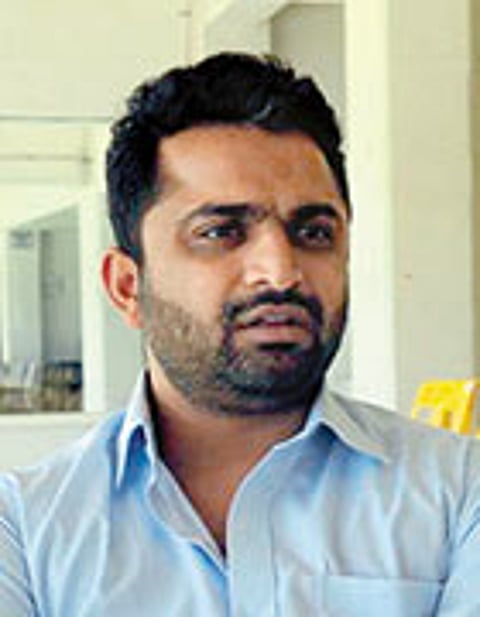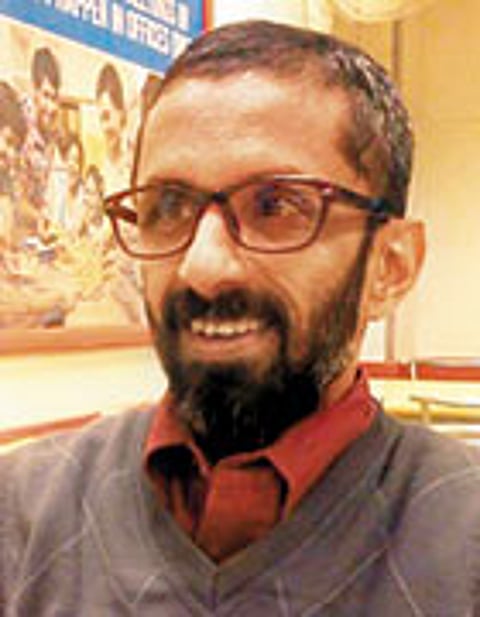Cricket, by and large, has always been a family affair—sons following in the footsteps of their fathers or siblings and, more often than not, making the 22 yards their own place to shine. The Board of Control for Cricket in India (BCCI), one of the richest sporting bodies in the world, is a different matter altogether; it’s family business for some of the most influential cricket administrators in India, a group of people often accused of trying to cling on to their positions in the set-up. It’s a taint unlikely to be erased soon, not after recent shocking developments during elections to state associations.
BCCI And The Big Family Drama - Craze For Power Overrides Ethics, Rules
Despite the Supreme Court's call for good and transparent governance in the BCCI, influential families have manipulated elections to ensure they continue to remain in position of power
Former BCCI strongman N. Srinivasan, who was forced to step down as the board president by the Supreme Court and also asked to stay away from cricketing affairs after allegations of conflict of interest, sprang the biggest surprise when he managed to field and even ensure the victory of his daughter Rupa as his successor as president of the Tamil Nadu Cricket Association (TNCA). Rupa, for the record, is the wife of Gurunath Meiyappan, who was banned for life from cricketing activities for spot-fixing in the 2013 edition of Indian Premier League. Many in cricketing circles believe that Rupa’s election will enable Srinivasan to control TNCA’s activities through proxy. Rupa, however, has some administrative experience as a director in India Cements, of which Srinivasan is vice chairman and MD. But cricket experts have been quick to point out that she has little experience in the game’s administration. Rupa declined to comment on the issue. A TNCA spokesperson said she was “not interested in giving interviews”.
Across the country, in state cricket associations affiliated to the BCCI, the same pattern of extending family rule has been replicated—in Baroda, Gujarat, Goa, Himachal Pradesh, Odisha, Saurashtra, and Uttarakhand where disqualified family members are expected to dictate terms through proxy. In Bengal, late Jagmohan Dalmiya’s son Avishek Dalmiya has become the secretary. But the most bizarre moment in the recently-concluded elections came when former Odisha Cricket Association (OCA) secretary Ashirbad Behera voted from jail for his son Sanjay, who won the secretary’s post. Behera is jailed in a chit-fund case.
Former India captain Bishan Singh Bedi, known for his disdain of the BCCI’s affairs, is bitter in his criticism. “How can it (extended family rule) be good? It is bad news for world cricket. It is murder of the game. I am so despondent that I can’t tell you. A majority of our cricket officials are like bougainvillea that needs the support of a wall to climb up but its thorns sting,” Bedi tells Outlook.
The developments fly in the face of an ongoing purge of India’s cricketing affairs that began with the Supreme Court-appointed Justice R.M. Lodha panel recommending several measures to clean up the game’s management in the country. The resistance from the BCCI, long used to working like a privately-owned corporation, has been severe and persistent.
The reforms don’t bar family members from contesting elections of the BCCI and its affiliates. But Lodha, a former Chief Justice of India, says they have not followed the spirit of the reforms (see interview). Officials who are extending their family stronghold also justify their elections, the most common reasons given is the democratic set-up of the BCCI and its affiliates, individual merit, and the previous good work of their family members. But cricket connoisseurs such as Bedi would have none of it.
Kishore Rungta, a former BCCI treasurer (1999-2003), squarely blames Srinivasan for the mess in the BCCI that invited the top court’s ire. “The Lodha committee was not necessary at all as the BCCI was running so harmoniously, except during the tenure of Srinivasan as president (2012-2014) when he messed up things badly,” says the 68-year-old Jaipur-based businessman whose father P.M. Rungta was BCCI president and treasurer for separate terms and dominated Rajasthan Cricket Association for almost three decades. “If he had stepped down during the Meiyappan-IPL betting issue, the Supreme Court may not have taken notice of the situation and the Lodha committee wouldn’t have been formed. Srinivasan is to be blamed completely for this.”
Bedi’s former India teammate Anshuman Gaekwad is restrained in his reaction. “To be fair, it all depends on how one interprets it; there are two sides of the coin. But if you are at the helm of affairs and you resign and are out of it, then any family member is free to contest election. Everybody is independent and can do want he/she wants. Why should they suffer because somebody [from the family] was there sometime back?” says the 67-year-old former opening batsman.
The powerful predecessors, mostly fathers, of the second-generation officials were disqualified under the nine-plus-year and age eligibility rules recommended by the three-member Lodha Committee and approved by the Supreme Court. All office-bearers’ posts at the state level are for three-year terms, but they can be re-elected for a second consecutive three-year stint before the mandatory three-year cooling off period comes into play. After the break, anyone can return for one last three-year term. Exactly the same rules apply to the BCCI office-bearers, who could be elected at the annual general meeting (AGM) slated for October 23.
The Gujarat Cricket Association, once headed by Narendra Modi and then by Amit Shah, didn’t hold elections for the president’s post—perhaps in the hope that the final Supreme Court judgment in the IPL betting case would enable it to have a “suitable” man for the post. Shah’s son Jay Shah, who was joint secretary under his father till recently, has been nominated for the BCCI AGM, though he is no more an office-bearer in Gujarat.
Baroda is the only one of the 35 BCCI-affiliates where two prominent posts—president and secretary—are held by the sons of long-serving, erstwhile officials. President Pranav Amin is the son of ex-president Chirayu Amin, also a former BCCI vice president and chairman-cum-CEO of Alembic Pharmaceuticals. And Ajit is son of late Jaywant Yashwant Lele, a Baroda Cricket Association (BCA) secretary for 32 years (1968-2001). He later rose to become the BCCI joint secretary and secretary.
Ajit, 56, a software engineer, justifies his decision to contest. “I’ve been in the BCA managing committee since 2013, so I’m not new to administration. I received support from both factions in the association...my winning margin shows that people have faith and trust in my family. I may be extending my father’s legacy, but I’ll have to prove my mettle. Otherwise, they’ll throw me out the next time,” says the ex-lead analyst with Nielsen.
Jaydev Shah, 36, whose father Niranjan Shah had an uninterrupted run for over 45 years as Saurashtra secretary starting in the early 1970s, also wants to be judged on his work alone. “My father was an amazing administrator and gave over 40 years to it. I retired as a player last year to give an opportunity to a youngster in the Saurashtra team, and felt I can contribute as an administrator. But my test will start now, and people will judge me on my work. They should judge me after 10 years,” says the former Saurashtra captain who took his low-profile team to the Ranji Trophy finals twice in recent years.
New Hyderabad Cricket Association president Mohammed Azharuddin carries no such baggage, but he defends the chosen ones. “I feel whoever is elected is elected, whether he’s another one from his family or from outside, once they are elected they are part of the board. After all, they’ve been elected by the voters of their associations. I don’t think we should say much on this issue because there’ll be no end to this,” the former India captain tells Outlook.
But Bedi, 73, disagrees. “Trust the Indian mind to find lacuna and loopholes in anything. The word democracy is being misused [by those who are extending the family rule]. Chalta hai means you are accepting this illegitimacy. There are some who say there would be a lack of experience if they go away. They are sounding like they are indispensible. For what? For loot-maar? Are their conscience alive?” he asks.
Some people, including Rungta, are still optimistic that change would come, sooner or later. “Everything takes its own time to change, whether it’s cricket or politics. After all, India is a democratic country,” he says. For that we’ll have to wait till 2022, when the term of the current officials ends, provided there is no more litigation.

Arun Thakur
President, Himachal, brother of Anurag Thakur ex-secretary

Avishek Dalmiya
secretary, Bengal, son of Jagmohan Dalmiya ex-president

Jaydev Shah
President, Saurashtra, son of Niranjan Shah ex-secretary

Ajit Lele
Secretary, Baroda, son of J.Y. Lele ex-secretary
Pranav Amin
President, Baroda, son of Chirayu Amin ex-president
Dhanraj Nathwani
V-P, Gujarat, son of Parimal Nathwani ex-vice president
Sanjay Behera
Secretary, Odisha, son of Ashirbad Behera ex-secretary
Vipul Phadke
Secretary, Goa, son of Vinod Phadke ex-president
Mahim Verma
Secretary, Uttarakhand, son of P.C. Verma ex-secretary